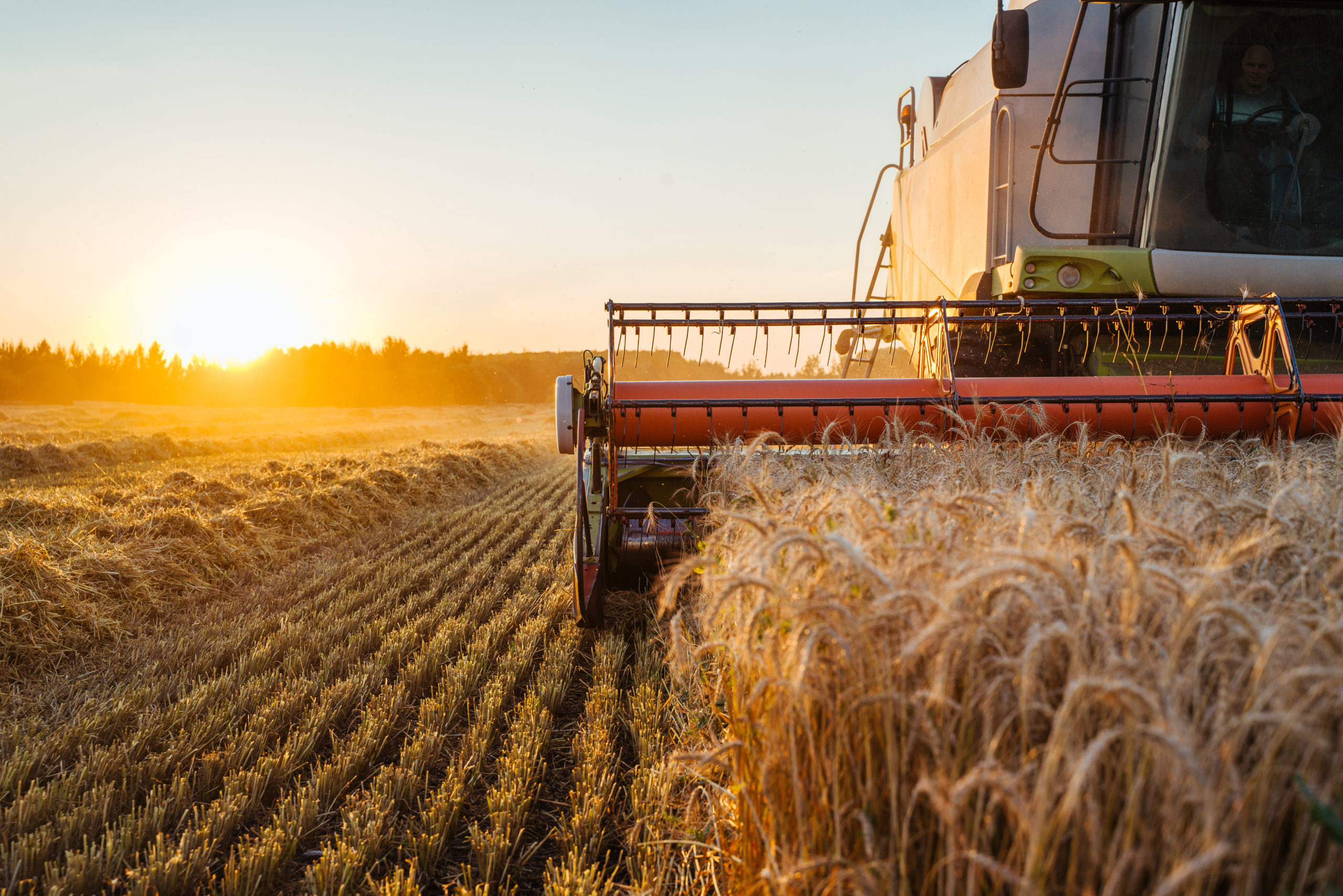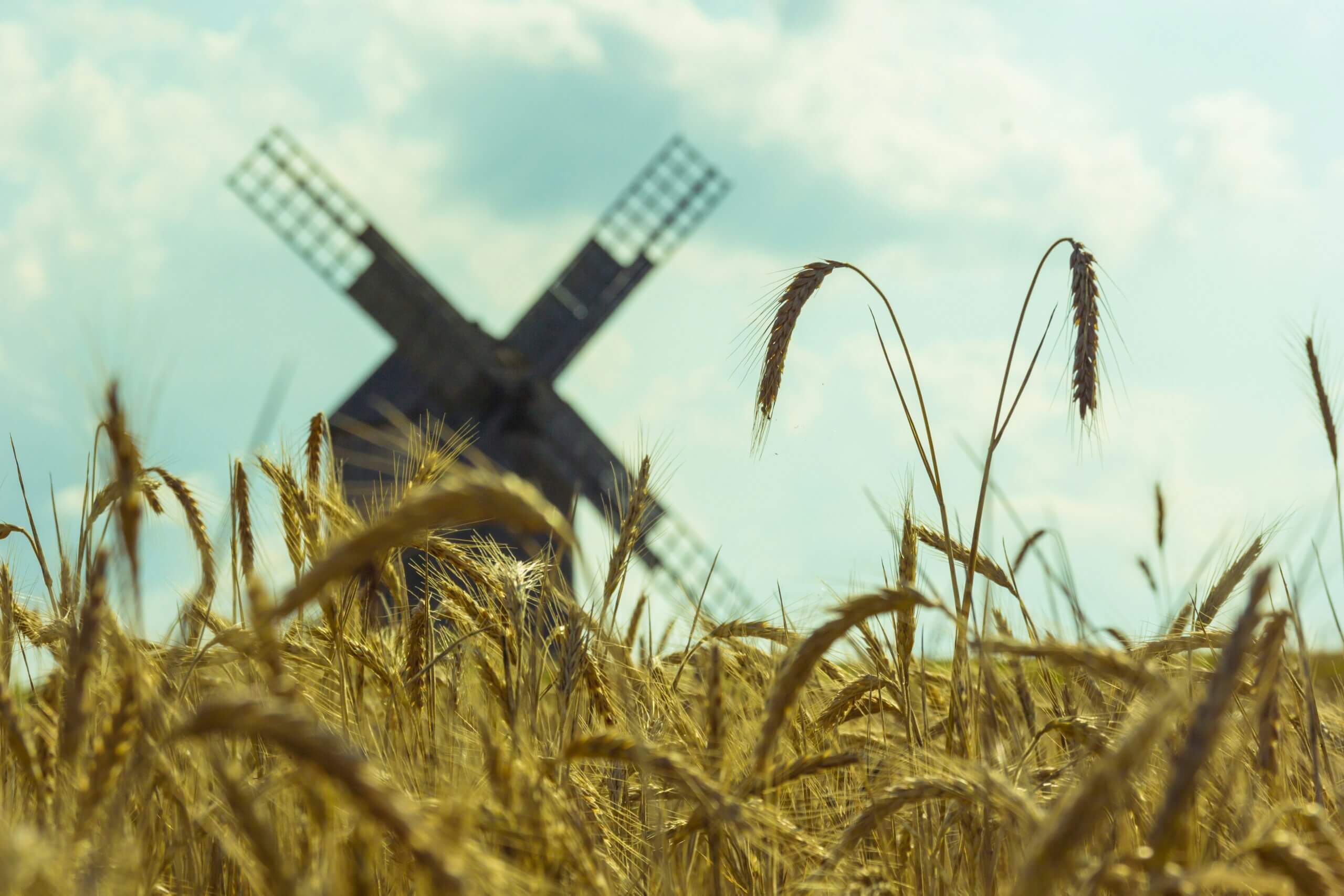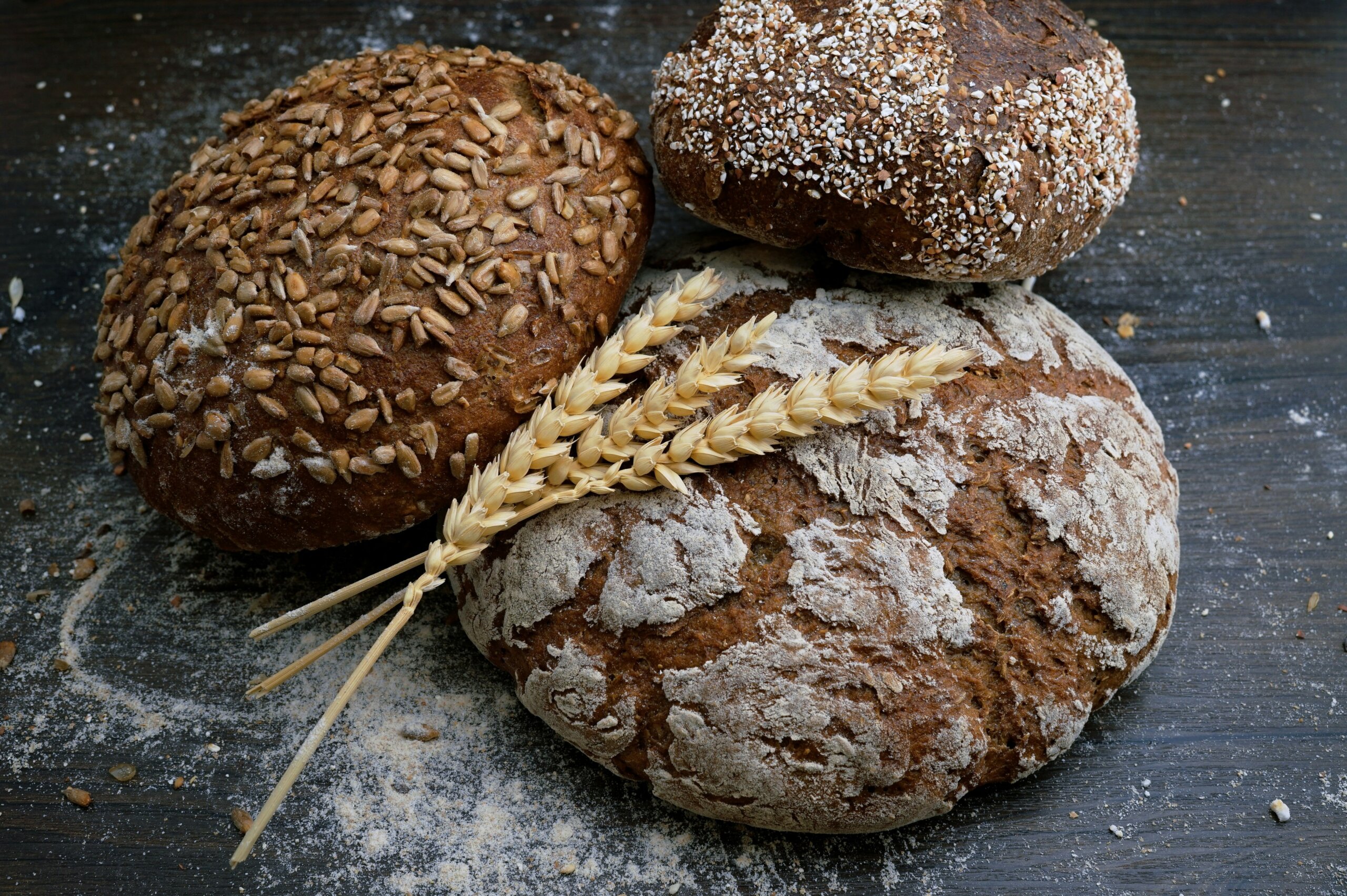New Zealand
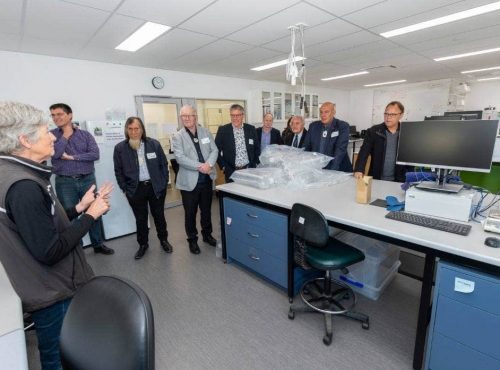
Plant and Food open new research facility in Riwaka
Wakatū Incorporation and Plant & Food Research have joined forces to develop a new purpose-built laboratory for crop research at Riwaka.
Officially opened on Tuesday, the new building has replaced several older buildings at the Plant & Food site – and will bring research into one purpose-built facility.
The site is home to more than 55 Plant & Food Research staff who work on crops of importance to the area, such as hops, kiwifruit, apples, pears and berryfruit, and also includes 36 hectares of research orchard land.
Plant & Food general manager for technology development Dr Kieran Elborough said the new building was a big upgrade over what had been an “old and tired facility”, with some of the buildings dating back to the 1950s.
Read More here…
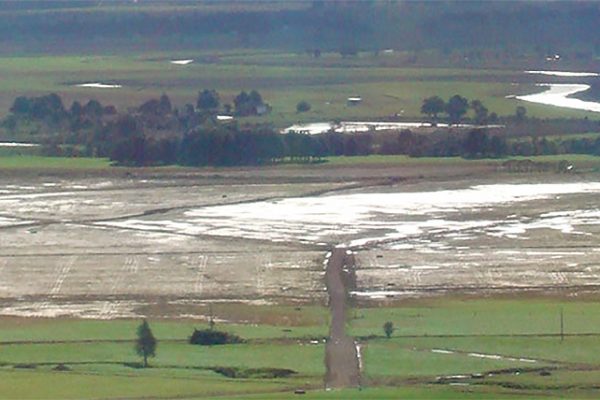
Flood affected dairy farmers are not only facing years of reconstruction, but the region-wide loss of winter feed reserves. These are the farmers producing more milk with fewer cows and the world’s lowest emissions
About the only positive thing that could be said about the Canterbury floods is that at least the vast majority of dairy farmers have dried their cows off for the season. This allowed farmers to get cows to safer ground without the added complication of having to milk as well.
With the season over, dairy farmers were looking forward to a profitable next season and a break over the drying off period. For many this is now a distant dream with generations of development work now washed away and a winter of hard work ahead.
Read More here…
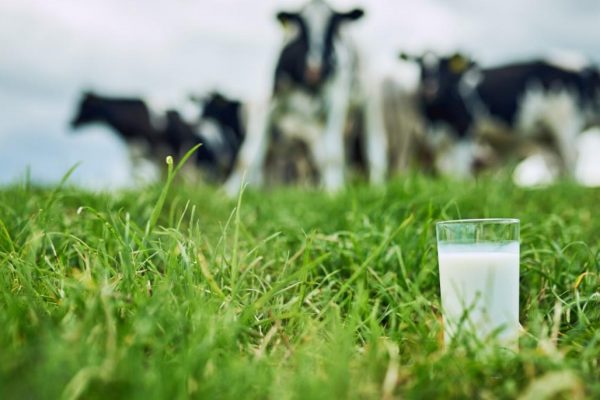
Global dairy prices ease slightly in first auction of new dairy season
Dairy prices eased slightly in the latest Global Dairy Trade event overnight, but continued to hold most of their recent gains.
The average price for commodities fell 0.9 percent to US$4128 per metric tonne (MT), with a total quantity of 22,825 metric tonnes sold at the auction.
Prices for whole milk powder – the most important commodity for New Zealand farmers – was down 0.5 percent to US$4062/MT.
Skim milk powder also fell 0.5 percent to US$3415/MT, while butter milk powder was down 7.5 percent to US$3810/MT.
Read more here…
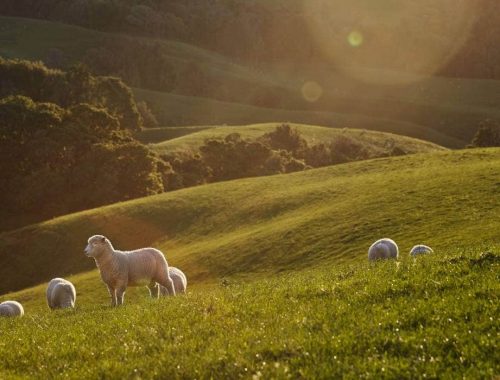
We are good at agriculture, and we can be proud of it
Prof. Derrick Moot, head of the Dryland Pastures Research team at Lincoln University and a keynote contributor to MakingMeatBetter.nz, gives his thoughts on the NZ farming industry.
The adage ‘the consumer is king’ has never been more pertinent than it is today for New Zealand’s animal agriculture sector. What consumers think about our products, how they feel when they eat them, and their perceptions of how it’s produced, have become something of a national obsession.
After all, 40 per cent, or $17.4 billion worth of our annual export income, relies on global consumers continuing to place value on the animal-sourced products we produce – and preferably at a premium.
In this Covid-ravaged world, that export income has never been more important for Aotearoa.

Government should change rules on where carbon farming is allowed – Waitaki mayor
The Waitaki mayor wants the government to change the rules on where carbon farming is allowed.
This week, more than 150 people attended a public meeting in Oamaru to hear about what the council can do about new proposals for carbon farming.
That is the practice of keeping the greenhouse gas out of the atmosphere and instead sequestering (or capturing and storing) it in, for example, pine plantations.
Waitaki Mayor Gary Kircher said the government should take the lead in determining where plantations can go and how they are governed.
Read More here…
Australia
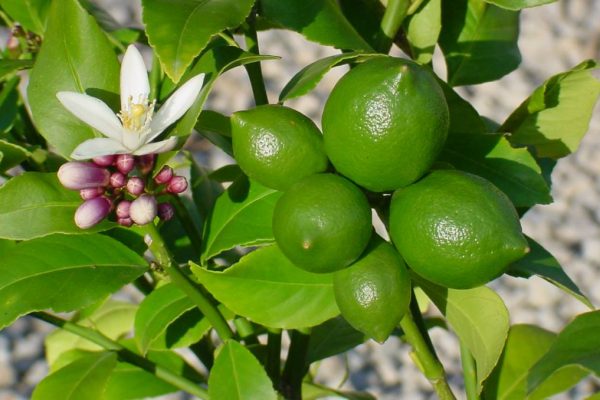
Ag minister David Littleproud defends federal government’s plan to import limes from Mexico
THE federal government has stood behind it’s controversial plan to import limes from Mexico into Australia, despite strong protest from the local citrus industry.
Agriculture Minister David Littleproud is currently assessing an application from Mexico to import limes into Australia.
Lime growers in far north Queensland have slammed the plan, warning that it could potentially risk bringing in the citrus canker disease.
Queensland is currently the largest producer of limes in Australia with 558 hectares of mature lime orchards, representing more than half of Australia’s total lime production.
Read more here…
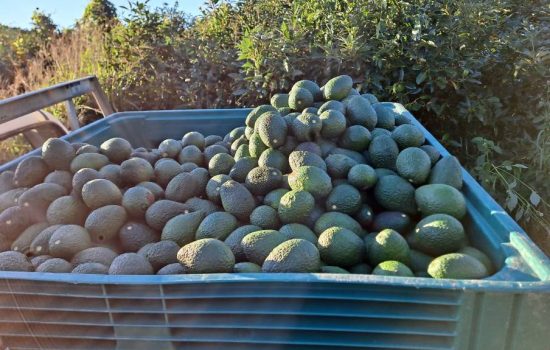
Avocado industry tastes fruit from tissue culture-grown plants
TASTEBUDS, not test tubes, have given the tick approval to the world’s first Hass avocados produced by trees grafted on tissue culture plants
Trials in selected avocado-growing regions throughout Australia have highlighted the benefits of clonal tissue culture rootstocks in yielding high-quality fruit.
Avocado industry stakeholders and special guests were given a sample of the tissue culture-grown fruit in Brisbane this morning as part of the Hort Connections conference.
The tissue culture technology allows for up to 500 times more plants to be grown from a single cutting in 10-12 months – significantly reducing both resources required and the time it currently takes to produce a plant for sale in an orchard.
Read more here…
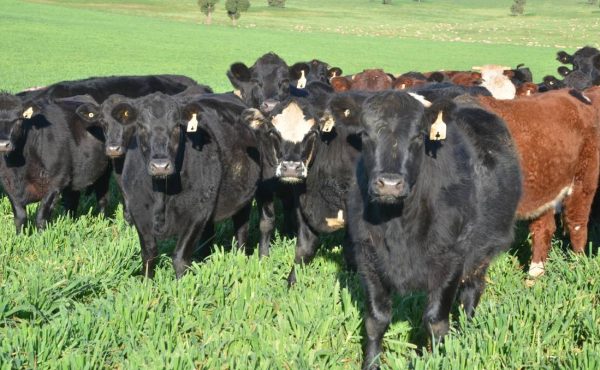
Australian beef a leader in environmental credentials
Do you like your beef, but are worried about whether it’s good for the environment?
Well guess what, Aussie beef consumers should have full confidence in and be proud of the Australian beef industry – and here’s why.
The industry has been working hard to build solid environmental credentials and continues to lead many industries in its sustainability push.
It has world-leading production and integrity systems, is custodian of more than 77 per cent of the total land used for agriculture, and plays a vital and sustainable role in feeding Australians and the world.
Read more here…
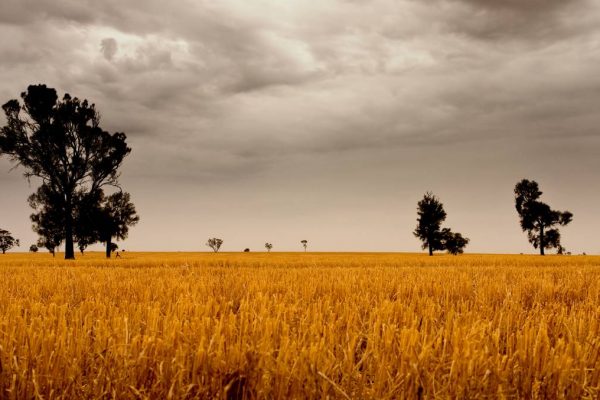
Showers freshen winter crops
Optimism is building over the outlook for the Queensland winter crop.
Southern Queensland cropping areas received a general 10-15 millimetres last week with more forecast this week.
Soaking rainfall in March, which saturated the Maranoa and Darling Downs, set the platform for a big winter crop. Winter crop plantings are expected to be well up on last year with the favourable start and strong prices.
Farmers were relieved to see last week’s rain, after a spell of warm, dry weather. Most are describing it as a above average start to the season, with good subsoil moisture reserves offering the knowledge there will be moisture reserves to finish crops in spring.
Read more here…

Rising port costs being passed back to the farmer
Peak exporting bodies say Victorian farmers are bearing the brunt of continued, sharp increases in charges, levied by Port of Melbourne stevedores.
In one case, stevedoring charges have risen by more than $135 a container, or 3977 per cent, since 2014.
In April, peak body the Freight Trade Alliance and the Australian Peak Shippers Association raised questions about the rising cost of terminal access charges (TACs) with the Productivity Commission.
“The bottom line is that vulnerable Australian supply chain participants are currently paying an additional $500 million a year direct to stevedores and empty container parks,” FTA/APSA director Paul Zalai said.
Read more here…
South America
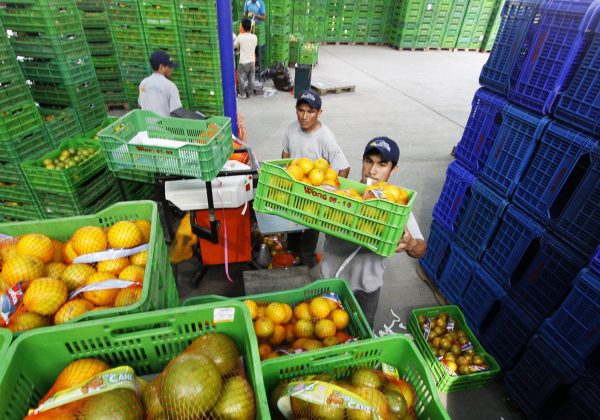
Brazil excels at agrifood production and exports, study reveals
A study released Wednesday by the Brazilian Agricultural Research Company (Embrapa) of the national Ministry of Agriculture, Livestock and Supply showed the country was the world’s fourth-largest grain producers in the world, it was announced.
According to the Embrapa report, Brazil has the largest bovine herd in the world and is the biggest exporter of this meat. The country also accounts for 50% of the global soy market and became the global number, two corn exporter, in 2020, in addition to its traditional shipments abroad of coffee and sugar.
Brazil has also conquered a bigger share of the international market over the last two decades, both in the production and in the export of products, according to a study by the Secretariat for Intelligence and Strategic Relations (Sire) titled Agro in Brazil and the World.
Read More here…
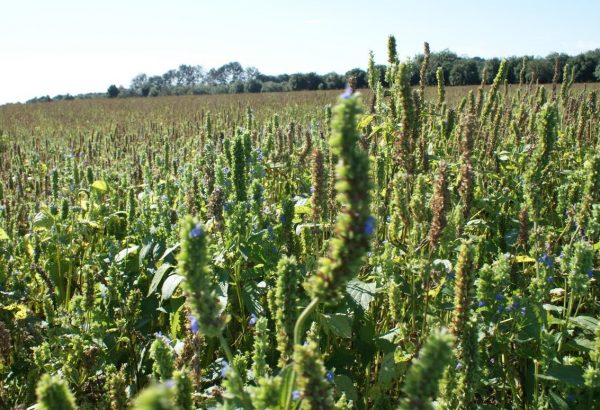
Japan eases controls on Paraguayan shipments of chia thanks to flawless quality
Japan’s Ministry of Health, Labor and Welfare have announced that controls for the presence of aflatoxins in chia imported from Paraguay were to become less strict, in light of the improvement in the quality and safety now duly recorded.
Paraguay’s National Service of Quality and Plant and Seed Health (Senave) announced Thursday that a note from the Japanese authorities had been received through the Foreign Ministry on May 31, regarding the reduction of controls applied to the shipments of chia.
With the new measure, Japan will stop inspecting 100 per cent of product loads from Paraguay, and will only apply controls to 30 per cent of them, facilitating trade, Paraguayan authorities explained.
Read More here
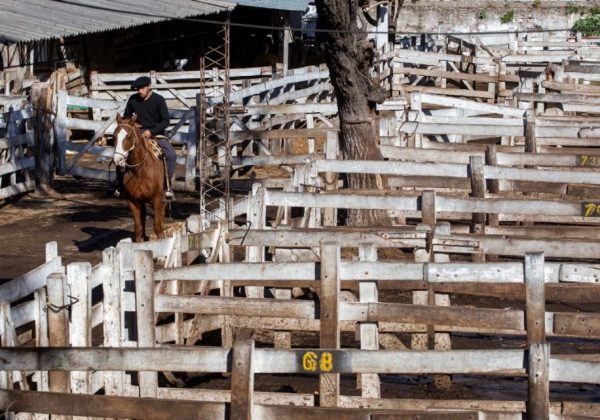
Cattle farmers end strike over beef exports ban
Cattle farmers on Thursday ended a two-week halt on domestic beef sales called to protest a government-imposed pause in exports designed to moderate skyrocketing meat prices.
The country is the fourth-largest beef exporter in the world, and one of its biggest consumers per capita, and revenues from the sector are vital to the country’s economy.
Back in mid-May, President Alberto Fernández’s government announced a one-month suspension on foreign meat sales to “get the sector in order, restrict speculative practices and avoid tax evasion in foreign trade.”
Poverty affects 42 percent of Argentines, and Fernández is trying to reduce the cost of living by implementing price controls.
Food Updates
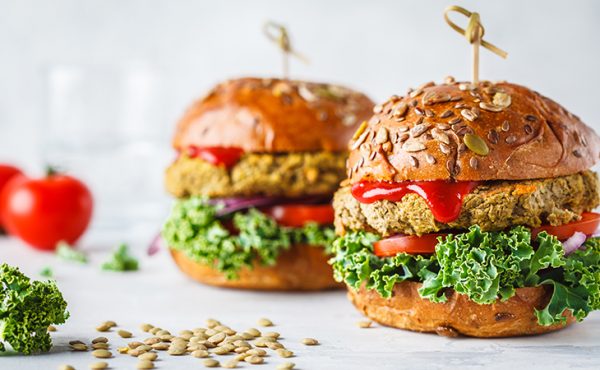
Why plant-based doesn’t necessarily mean healthy
David McClements warns that plant-based alternatives are not necessarily healthier than their “traditional” counterparts, thanks to the amount of sugar, salt, and saturated fat sometimes present in them.
As meat-eating continues to increase around the world, food scientists are focusing on ways to create healthier, better-tasting and more sustainable plant-based protein products that mimic meat, fish, milk, cheese and eggs.
It’s no simple task, says renowned food scientist David Julian McClements, University of Massachusetts Amherst Distinguished Professor and lead author of a paper in the new Nature journal, Science of Food, that explores the topic.
Read more here…
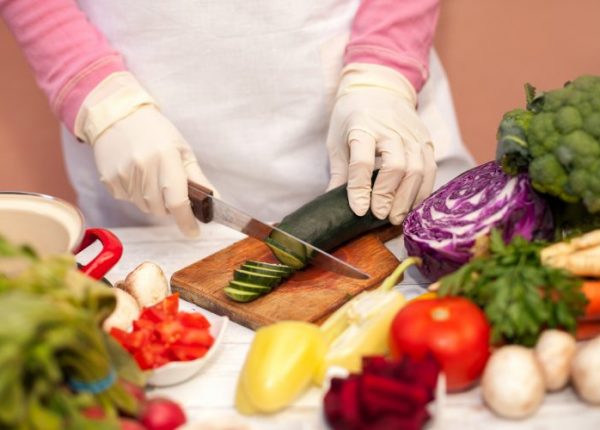
More than half of consumers more focussed on food safety
Read more here…
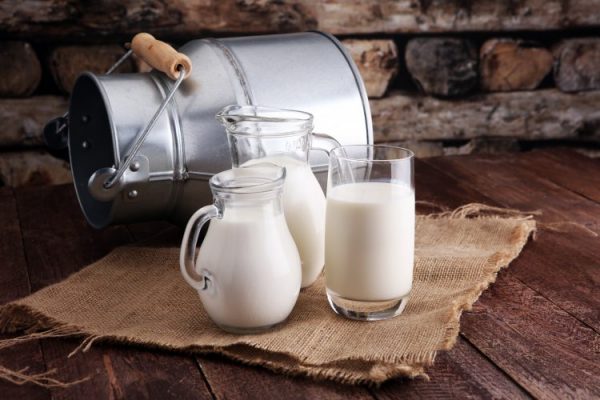
Vigilance needed to prevent aflatoxin M1 contamination in milk
Claire Milligan of R-Biopharm Rhone examines the issue of aflatoxin M1 in milk and dairy products, and explains why it’s a problem that has not yet been solved by the food industry despite being around for a while.
If animal feed intended for use for dairy cattle contains the fungal metabolite aflatoxin B1, it will be metabolised by the cow in the rumen. Between one and four percent of the aflatoxin B1 metabolite (known as aflatoxin M1) will be transferred into the milk. This hydroxylated metabolite, although less toxic than the parent compound, is nevertheless classified as a probable human carcinogen.
As might be expected, tough measures are in place to control and mitigate the presence of aflatoxin B1 in animal feed, and thereby minimise milk contamination.
Read more here…
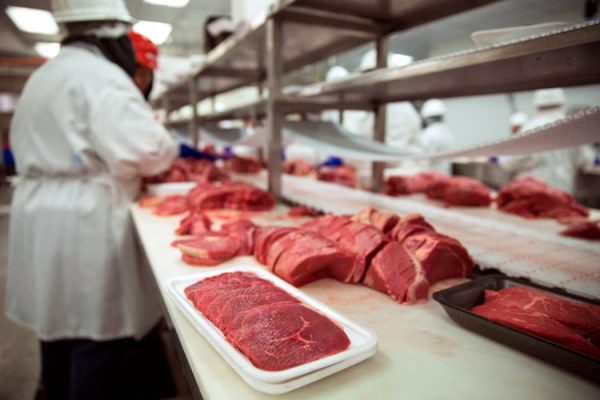
FSA compares international meat production methods
Recently, the Food Standards Agency (FSA) published the second in a series of scientific reports which attempt to compare different international food production processes and levels of contamination, in an effort to improve our own data, and to help provide the very best scientific basis for our independent advice to Government and other partners.
The Assessment Comparing Meat Production Processes In Selected Countries study summarises the different food production processes carried out worldwide and includes data on prevalence of different micro-organisms.
It was carried out to help the FSA better understand the international context of imports and the associated food safety control processes in place for products coming into the UK.
Read more here…

Biodiversity crucial to human nutrition study finds
A decline in biodiversity could have a damaging nutritional effect on populations dependent on fish according to a new study of the Peruvian Amazon.
All fish are not created equal, at least when it comes to nutritional benefits.
This has important implications for how declining fish biodiversity can affect human nutrition, according to a computer modelling study led by Cornell and Columbia University researchers.
The study, Declining Diversity of Wild-Caught Species Puts Dietary Nutrient Supplies at Risk, published in Science Advances, focused on the Loreto region of the Peruvian Amazon, where inland fisheries provide a critical source of nutrition for the 800,000 inhabitants.
Read more here…
